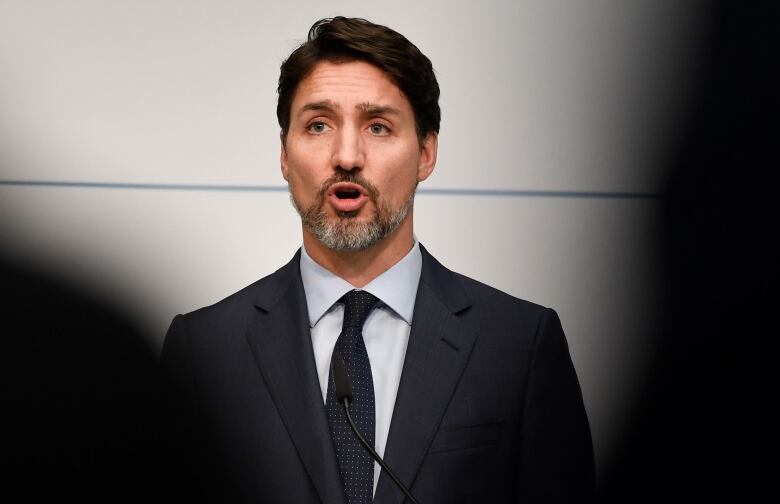Meeting between Trudeau and cabinet ministers to discuss cross-country protests concludes

Prime Minister Justin Trudeau and a group of cabinet ministers have concluded a meeting in Ottawa that was called to discuss how to resolve the protests and blockades that have crippled much of the country’s rail networks, the Prime Minister’s Office said.
Trudeau was seen entering the Office of the Prime Minister building shortly after 9 a.m. ET, as were Indigenous Services Minister Marc Miller, Public Safety Minister Bill Blair and Natural Resources Minister Seamus O’Regan.
Other ministers in the discussions include Crown-Indigenous Relations Minister Carolyn Bennett, Finance Minister BIll Morneau, Deputy Prime Minister Chrystia Freeland and Government House Leader Pablo Rodriguez, according to the PMO.
Trudeau said the Incident Response Group was convened to talk about how to handle the protests against a natural gas pipeline that crosses Wet’suwet’en First Nation territory in northern British Columbia.
Wet’suwet’en hereditary chiefs are opposed to the project.
“I’m going in to speak with the prime minister and my cabinet colleagues about this issue, and I think we’ll have more to say when we’ve completed that discussion,” Blair told reporters before the meeting.
The group was described upon its inception in 2018 as a “dedicated, emergency committee that will convene in the event of a national crisis or during incidents elsewhere that have major implications for Canada.”
Doug Ford asks for ‘immediate action’
Trudeau cancelled today’s planned trip to Barbados, where he was slated to meet with Caribbean leaders to campaign for a temporary seat on the United Nations Security Council.
He faced criticism last week over his presence in Africa and Europe as the protests were beginning, so Foreign Affairs Minister Francois-Philippe Champagne will represent Canada in Trudeau’s place.
There’s mounting political pressure for Trudeau to put an end to the blockades.
Ontario Premier Doug Ford spoke with Trudeau late Sunday and issued a statement urging the federal government to take action.
“Premier Ford asked the prime minister to take immediate action and provide detail on a clear plan to ensure an end to this national issue,” the statement read.
Scheer wants end to ‘illegal blockades’
Federal Conservative Leader Andrew Scheer said last week that Trudeau should tell Public Safety Minister Bill Blair to use his authority under the RCMP Act to end what he called the “illegal blockades.”
But Trudeau shot back, arguing that Canada is not a country “where politicians get to tell the police what to do in operational matters.”

Thus far, the public-facing part of Trudeau’s plan appears to centre on discussions and negotiations, rather than police action.
Carolyn Bennett, the minister for Crown-Indigenous relations, is due to meet today with her British Columbia counterpart, Indigenous Relations Minister Scott Fraser. Bennett is also ready to meet with Wet’suwet’en hereditary chiefs, should they give the go-ahead.
‘Did we learn from Ipperwash?’
Indigenous Services Minister Marc Miller met with Mohawk Nation representatives for hours on Saturday and said they made “modest progress.” The focus of their talks, he said, was on the pipeline in northern B.C. rather than the blockade on Tyendinaga territory near Belleville, Ont., which was at that point in its 10th day.
In an appearance on CTV’s political show Question Period, Miller pointed to the Oka and Ipperwash crises as reasons why dialogue is preferable to police intervention.
A police officer died during a police raid in 1990 near Oka, Que., when Mohawks from the Kanesatake reserve northwest of Montreal barricaded a highway over a land dispute, in what is known as the Oka crisis. Five years later at Ipperwash, Ont., one man was killed during a standoff over a land claim by Chippewa protesters outside a provincial park.
“Thirty years ago, police moved in in Kanesatake and someone died,” Miller said. “And did we learn from that? Did we learn from Ipperwash?”
But while Ontario Provincial Police have so far declined to enforce injunctions and remove protesters from that blockade, RCMP in B.C. have made more than two dozen arrests while enforcing similar injunctions near worksites for the pipeline at the centre of the dispute.



